Just a reminder: The future of LiA is very much in doubt, and it’s up to you to decide what happens next. Thank you for all your support!
 In the final analysis, i still feel like Yofukashi no Uta is about introversion, and everything else is symbolically supporting that theme. Introverts will know that at times in life the world treats you like you’re broken – like your essential nature is a disease that needs treatment. They’ll also know that extroverts don’t understand what it’s like to be an introvert (any more than we understand them) no matter what they say. The difference, of course, is that by our very nature we’re content to leave them the hell alone, and by theirs they insist on trying to “help” us.
In the final analysis, i still feel like Yofukashi no Uta is about introversion, and everything else is symbolically supporting that theme. Introverts will know that at times in life the world treats you like you’re broken – like your essential nature is a disease that needs treatment. They’ll also know that extroverts don’t understand what it’s like to be an introvert (any more than we understand them) no matter what they say. The difference, of course, is that by our very nature we’re content to leave them the hell alone, and by theirs they insist on trying to “help” us.
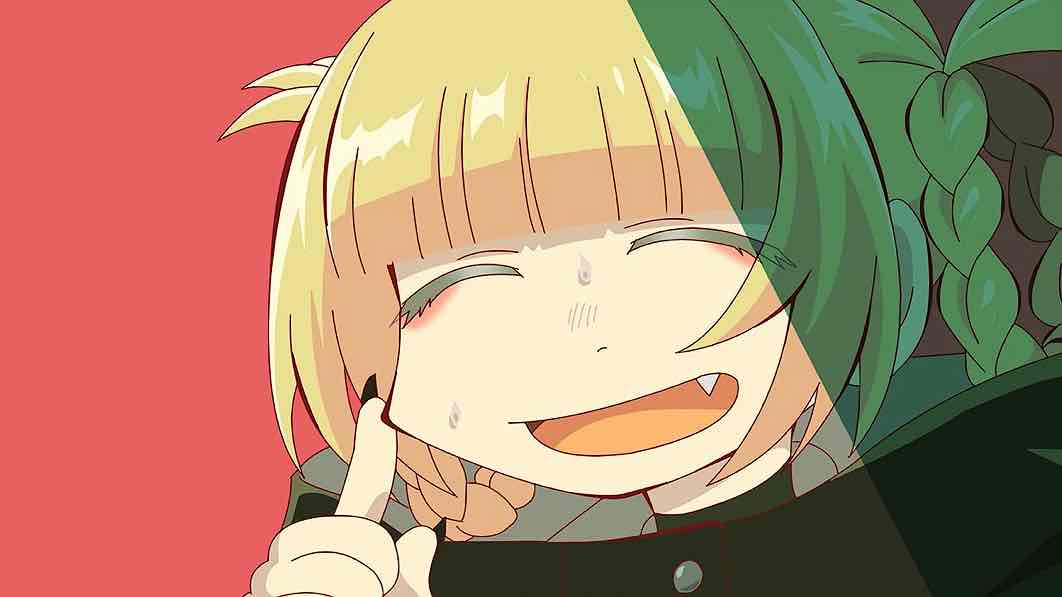 None of this is to say that common ground can’t exist. And indeed, sometimes opposites do attract, and do fall in love. But introverts usually have a lifetime of conditioning to believe that they’re broken, and should be trying to fix themselves. For someone like Kou that means someone like Mahiru (Ono Kenshou) is a person to be admired and aspired to. Eventually most introverts figure out what it is they need to do to get by in a society built for extroverts – at work, socially, and romantically. But it’s a matter of managing their nature, not changing it. It’s not a thing that can be changed.
None of this is to say that common ground can’t exist. And indeed, sometimes opposites do attract, and do fall in love. But introverts usually have a lifetime of conditioning to believe that they’re broken, and should be trying to fix themselves. For someone like Kou that means someone like Mahiru (Ono Kenshou) is a person to be admired and aspired to. Eventually most introverts figure out what it is they need to do to get by in a society built for extroverts – at work, socially, and romantically. But it’s a matter of managing their nature, not changing it. It’s not a thing that can be changed.
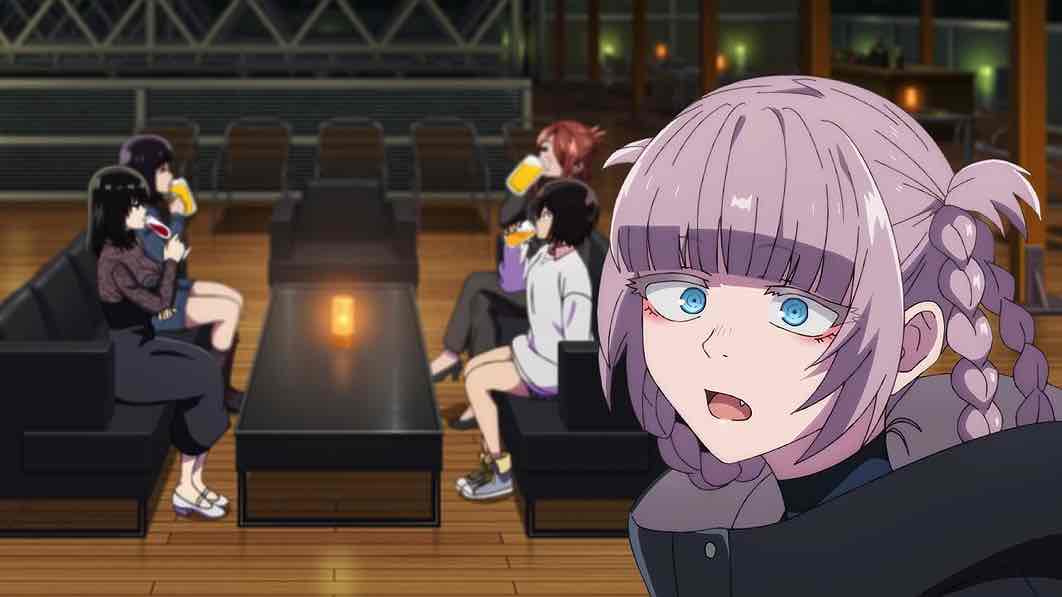 Based on the evidence so far it hardly seems as if vampires in this mythology are a society of introverts. But they are people who don’t seem to give a shit about what society expects. I think the draw for Kou is to escape from the expectations of a society he feels he’ll never fit into, and still feel like he’s fitting in somewhere. But apparently that means he has to fit in within a year, because that’s the time limit (somewhat arbitrarily) after the first time they’re bitten by which one has to become a vampire or the deal is off for good.
Based on the evidence so far it hardly seems as if vampires in this mythology are a society of introverts. But they are people who don’t seem to give a shit about what society expects. I think the draw for Kou is to escape from the expectations of a society he feels he’ll never fit into, and still feel like he’s fitting in somewhere. But apparently that means he has to fit in within a year, because that’s the time limit (somewhat arbitrarily) after the first time they’re bitten by which one has to become a vampire or the deal is off for good.
 Kou, in middle-school boy fashion, doesn’t find this too troublesome at first. But Akira points out that if he doesn’t turn in a year, in theory at least the vamps will kill him, because then he’ll just be a human kid who knows a lot about vampires. What Akira doesn’t seem to realize is that as Kou’s confidante, in theory at least her head is on the block too – she knows more than she’s supposed to, surely, though the vamps may be unaware of that. What’s not totally clear is whether this solely (or truthfully) comes down to his falling in love with Nazuna, or whether she could instigate it unilaterally if she chose.
Kou, in middle-school boy fashion, doesn’t find this too troublesome at first. But Akira points out that if he doesn’t turn in a year, in theory at least the vamps will kill him, because then he’ll just be a human kid who knows a lot about vampires. What Akira doesn’t seem to realize is that as Kou’s confidante, in theory at least her head is on the block too – she knows more than she’s supposed to, surely, though the vamps may be unaware of that. What’s not totally clear is whether this solely (or truthfully) comes down to his falling in love with Nazuna, or whether she could instigate it unilaterally if she chose.
 The truth is, of course, that none of this comes naturally to Kou, above and beyond the fact that he’s fourteen. Not falling in love, not being friends. Before he said he doesn’t understand about being in a fight, which I think is the single most enlightening thing he’s said in the entire series. The aforementioned Mahiru is an old friend of Akira and Kou’s – or at least he thinks he is. Even mid-trovert Akira was never sure whether the socially rapacious Mahiru was their friend, since he always seemed to be surrounded by a clowder of them. But Mahiru just assumed the three of them were tight.
The truth is, of course, that none of this comes naturally to Kou, above and beyond the fact that he’s fourteen. Not falling in love, not being friends. Before he said he doesn’t understand about being in a fight, which I think is the single most enlightening thing he’s said in the entire series. The aforementioned Mahiru is an old friend of Akira and Kou’s – or at least he thinks he is. Even mid-trovert Akira was never sure whether the socially rapacious Mahiru was their friend, since he always seemed to be surrounded by a clowder of them. But Mahiru just assumed the three of them were tight.
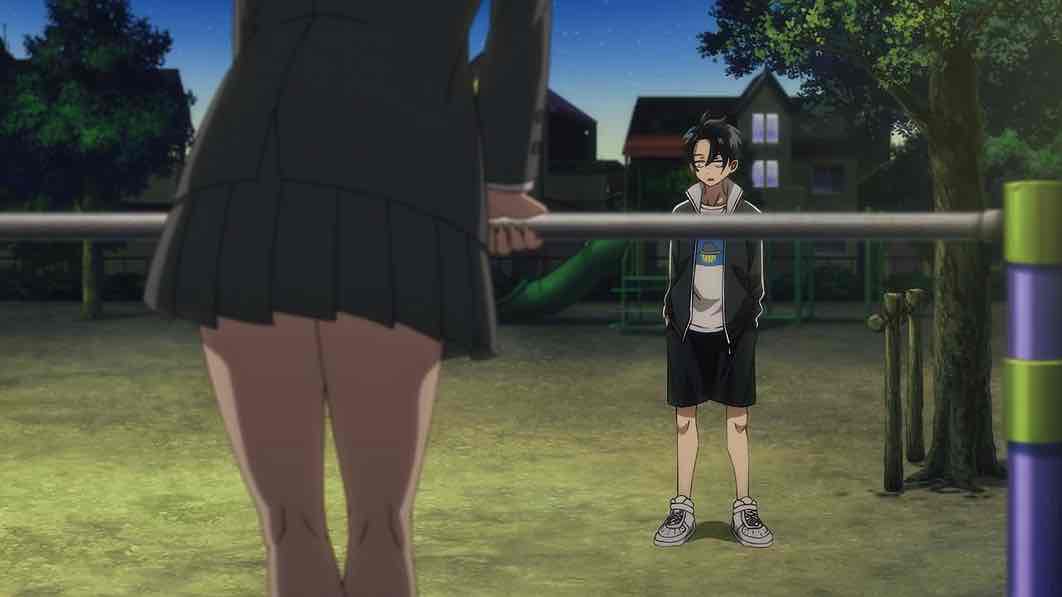 Mahiru is a genuinely nice guy, but everything that’s Greek to Kou comes naturally to him. He’s become a night owl himself – hanging with friends, yes, but mainly because he’s hooking up with what looks like an adult woman for sex. When his path crosses with Kou’s one night (despite Kou trying to duck him) Mahiru behaves as if they’re reunited besties. And Kou is touchingly thrilled by this, because Mahiru is everything he was brought up to believe he was supposed to be and isn’t. It’s a reminder that even if we’re uncomfortable with the expectations of society, introverts still crave its approval. Like I said, we’re conditioned from an early age.
Mahiru is a genuinely nice guy, but everything that’s Greek to Kou comes naturally to him. He’s become a night owl himself – hanging with friends, yes, but mainly because he’s hooking up with what looks like an adult woman for sex. When his path crosses with Kou’s one night (despite Kou trying to duck him) Mahiru behaves as if they’re reunited besties. And Kou is touchingly thrilled by this, because Mahiru is everything he was brought up to believe he was supposed to be and isn’t. It’s a reminder that even if we’re uncomfortable with the expectations of society, introverts still crave its approval. Like I said, we’re conditioned from an early age.
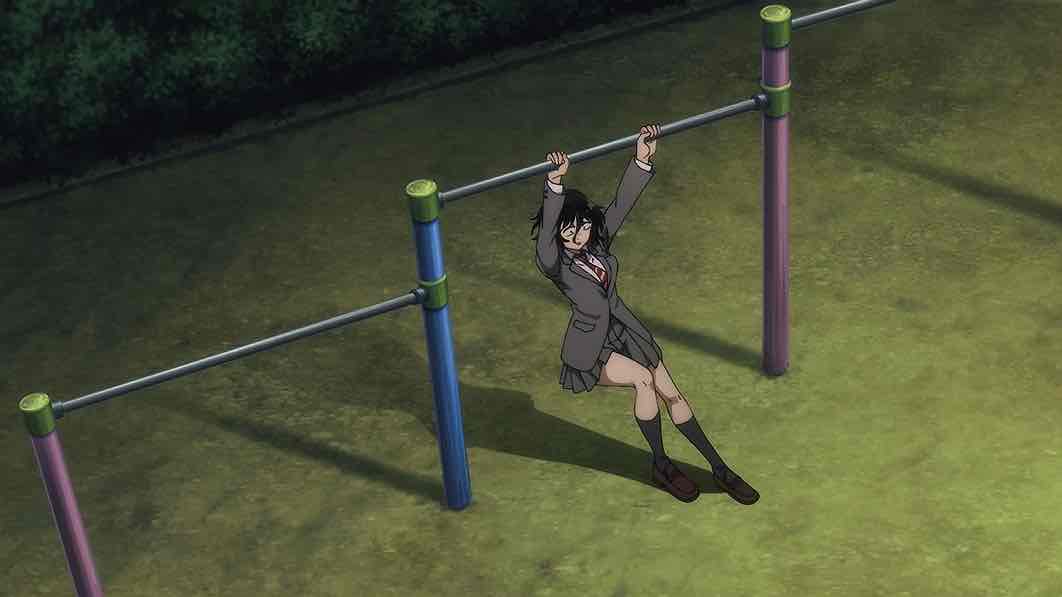 Somewhat alarmed by Akira’s warning, Kou has become rather fixated on the idea of kick-starting his conversion process. And Seri – quite turned on my his genuine innocence about all such matters – arms him with a set list to stage a date with Naz. It predictably goes disastrously wrong, not only because this isn’t someone Kou can even pretend to be but because that’s not who Nazuna is either. That said though, the question of just who Nazuna is remains a rather disturbing one at the heart of Call of the Night, and nothing we’re seeing is doing anything to dispel the uneasy uncertainty surrounding the answer.
Somewhat alarmed by Akira’s warning, Kou has become rather fixated on the idea of kick-starting his conversion process. And Seri – quite turned on my his genuine innocence about all such matters – arms him with a set list to stage a date with Naz. It predictably goes disastrously wrong, not only because this isn’t someone Kou can even pretend to be but because that’s not who Nazuna is either. That said though, the question of just who Nazuna is remains a rather disturbing one at the heart of Call of the Night, and nothing we’re seeing is doing anything to dispel the uneasy uncertainty surrounding the answer.



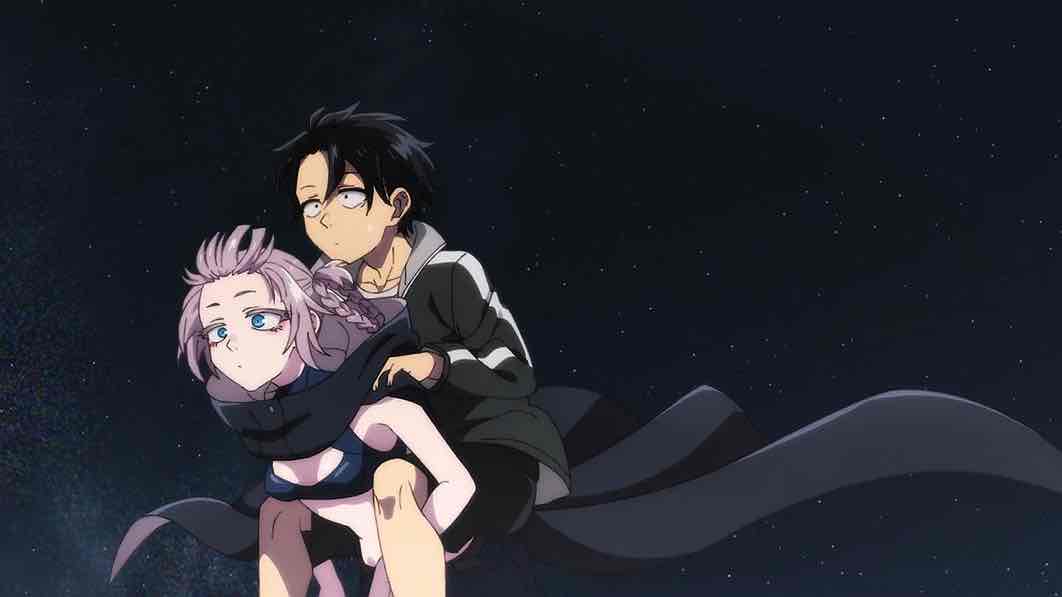


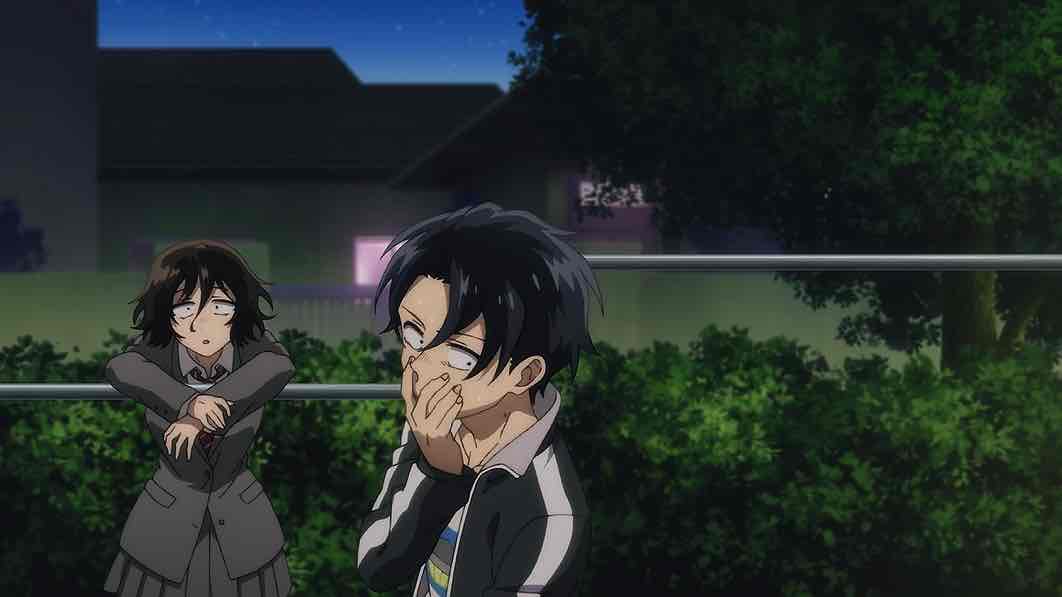
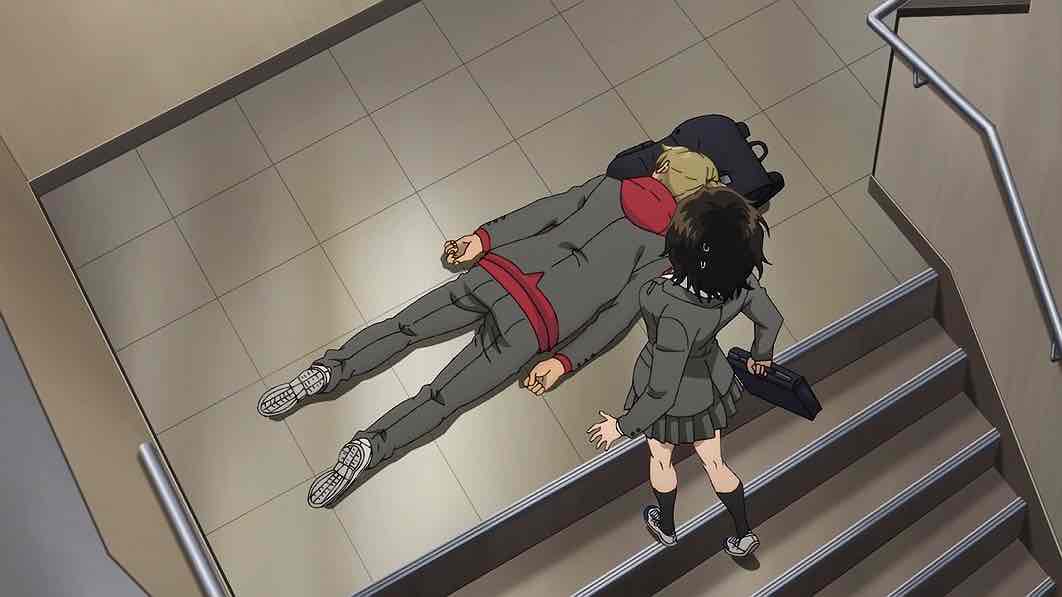


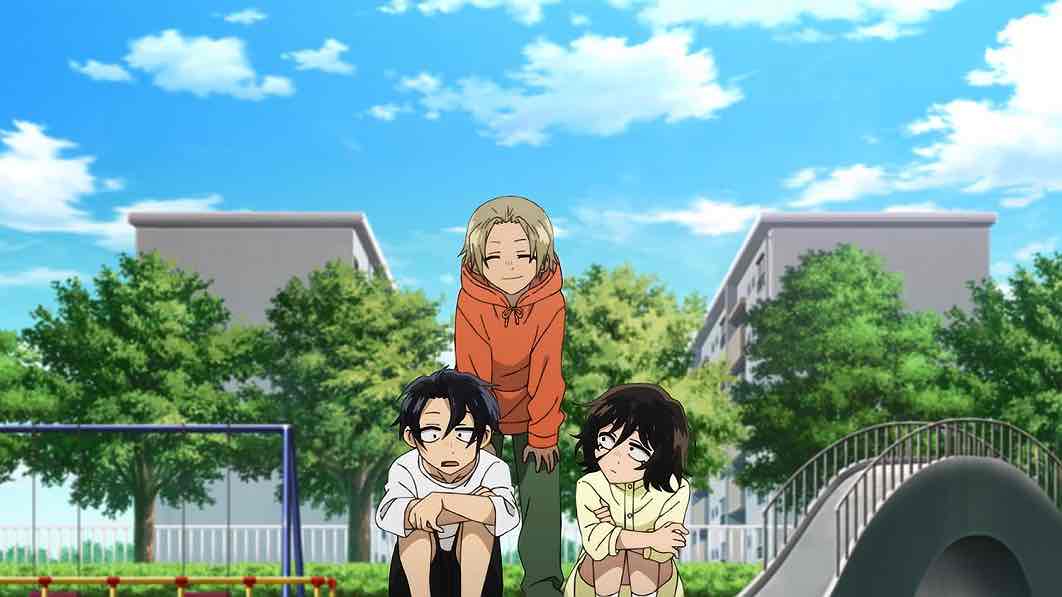
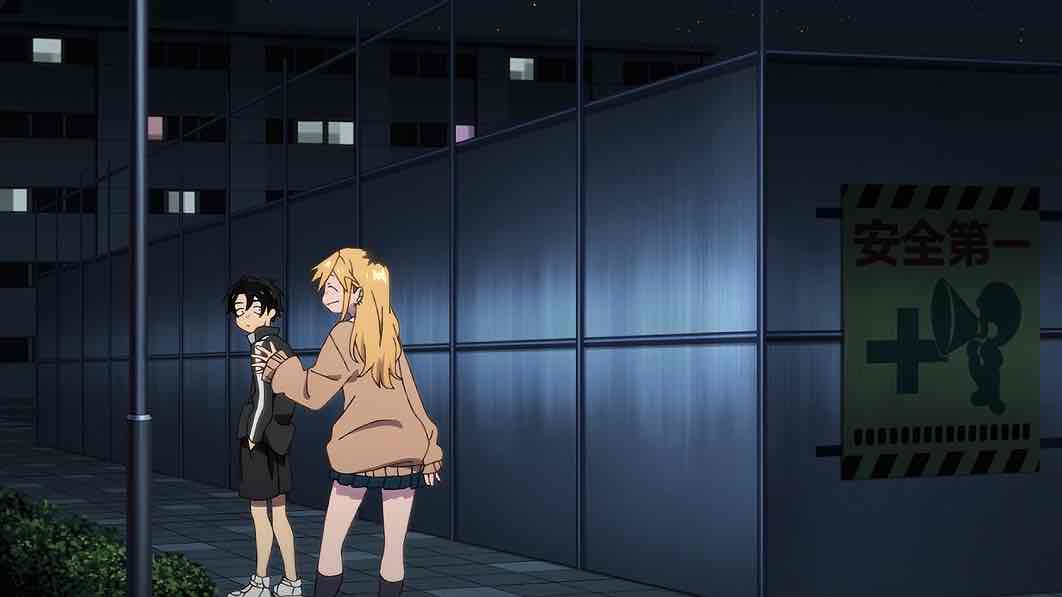


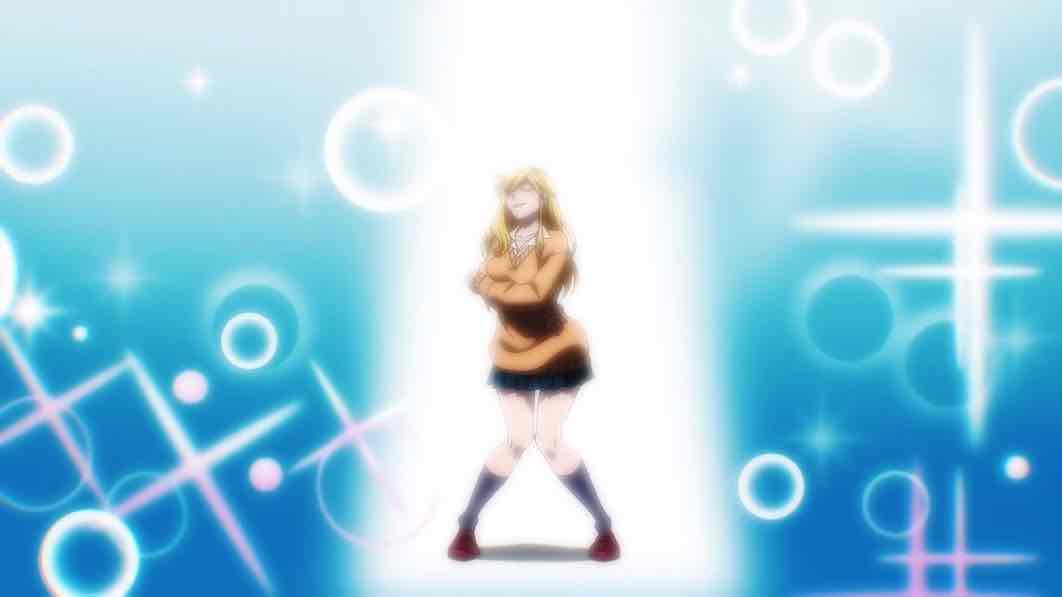
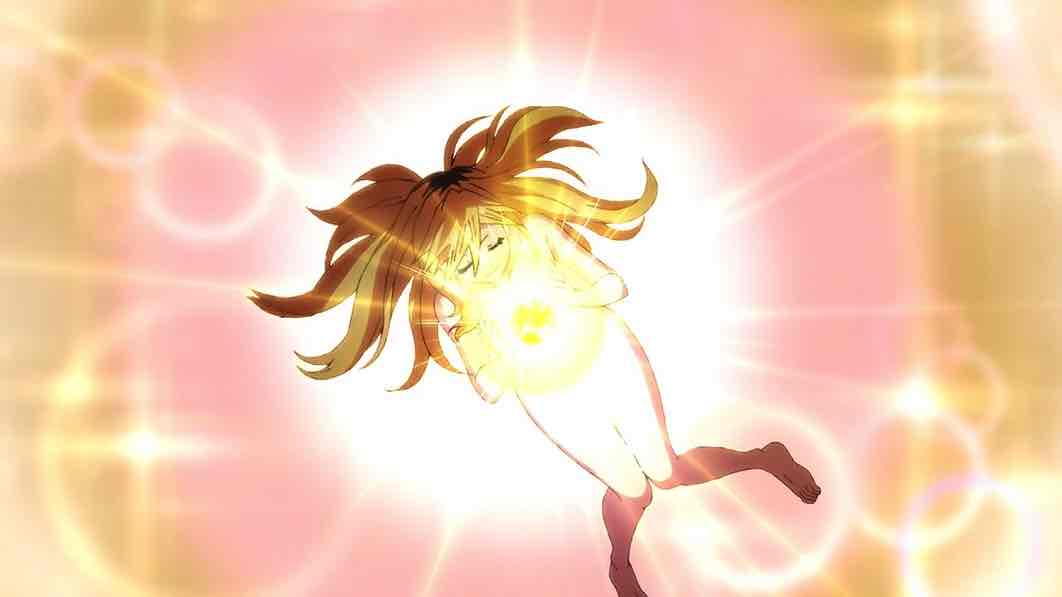

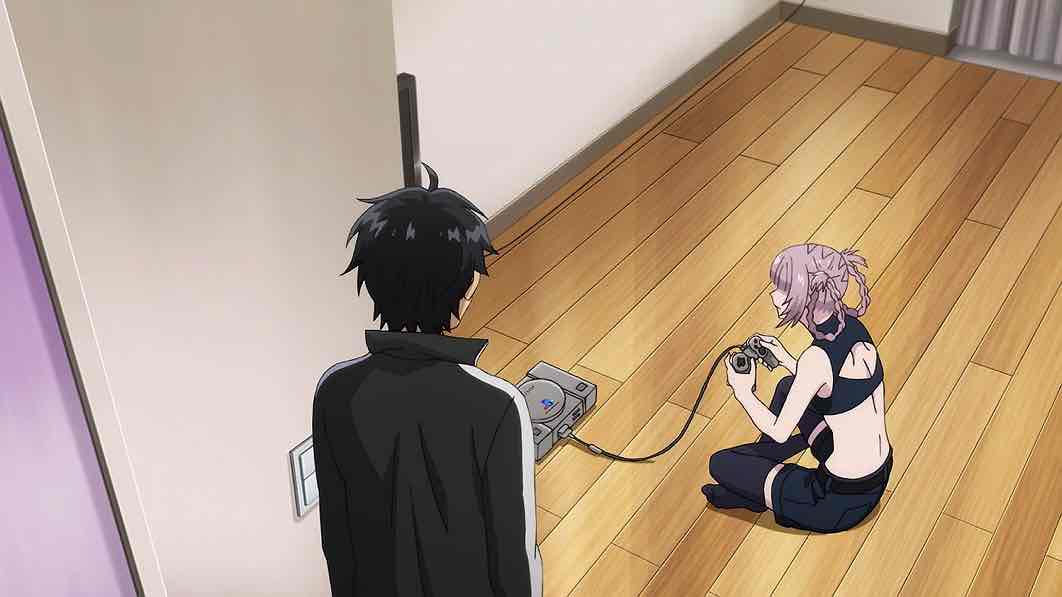








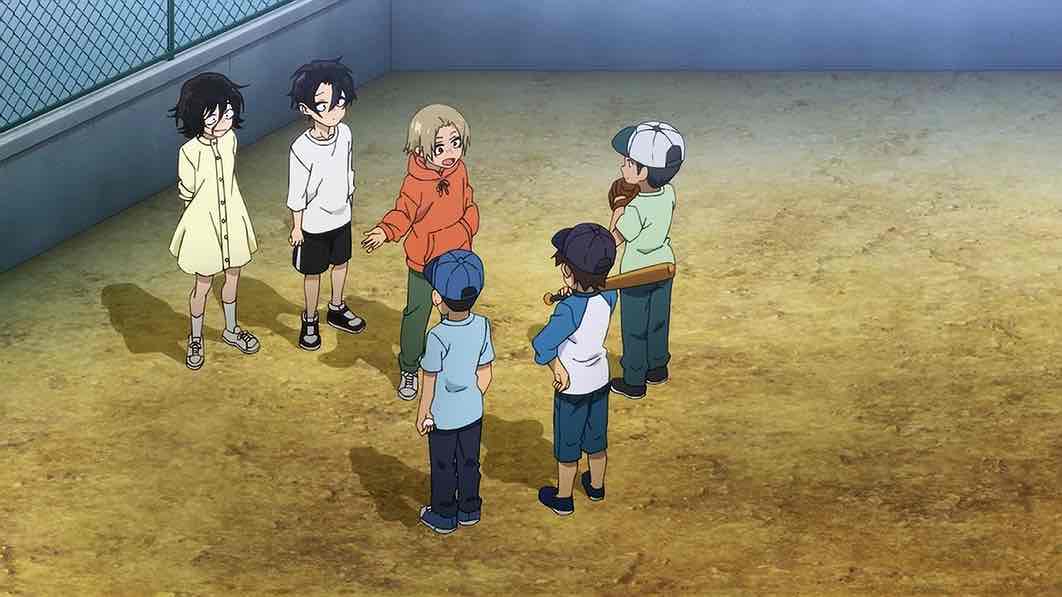

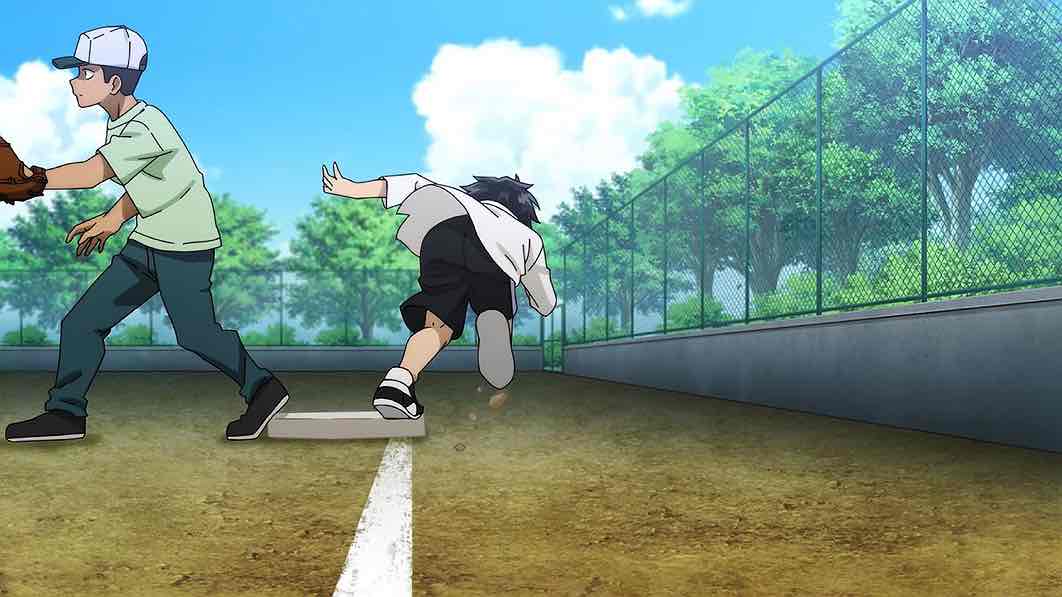


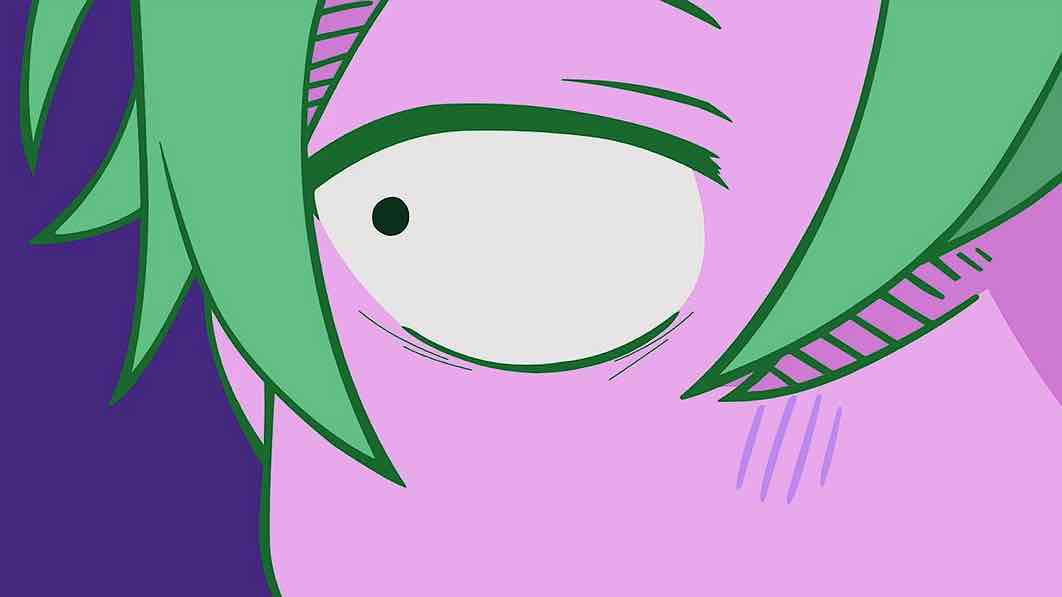

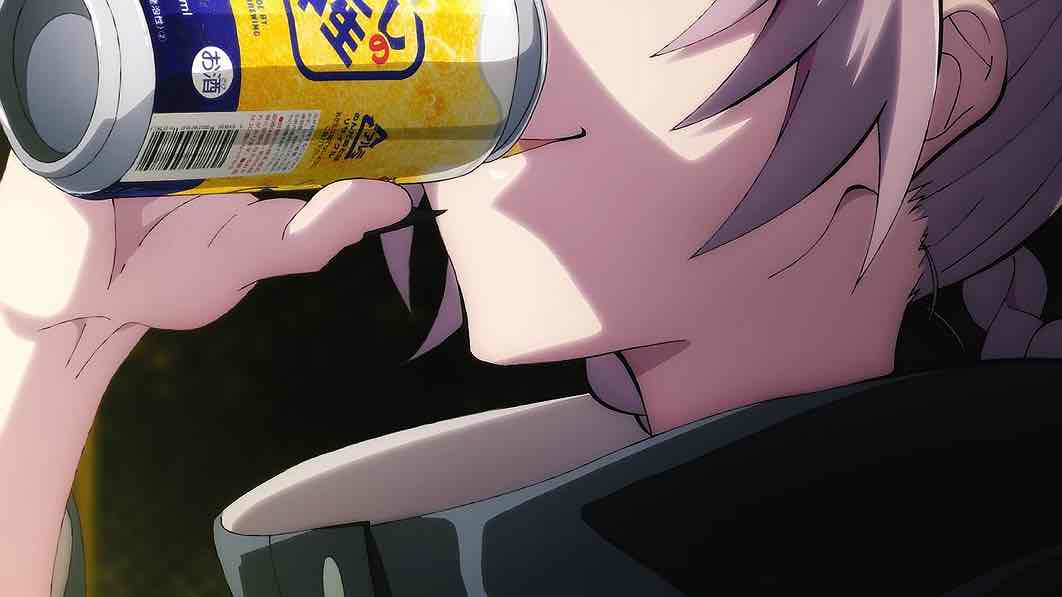

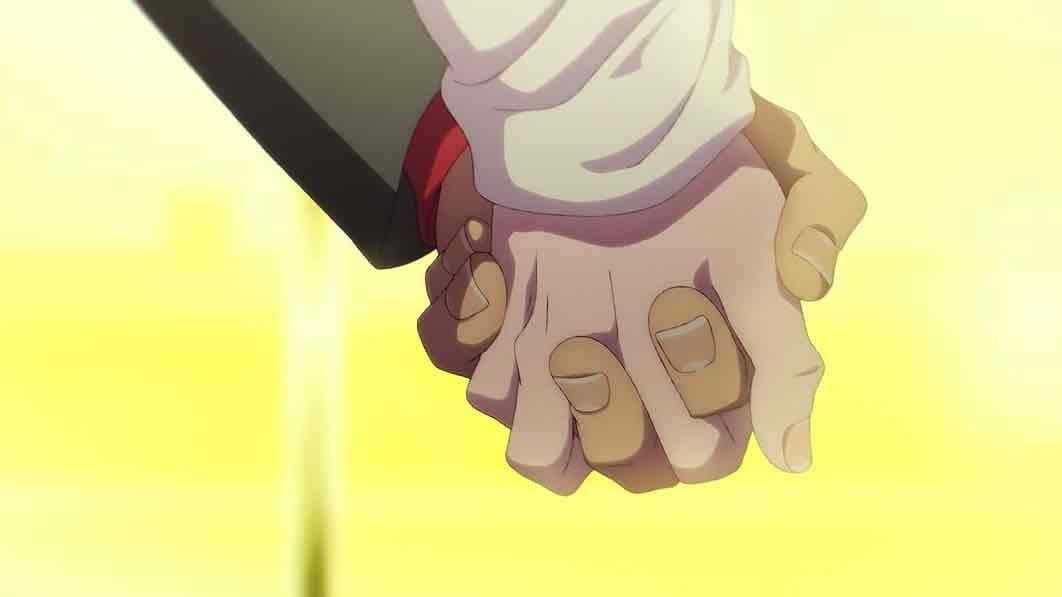
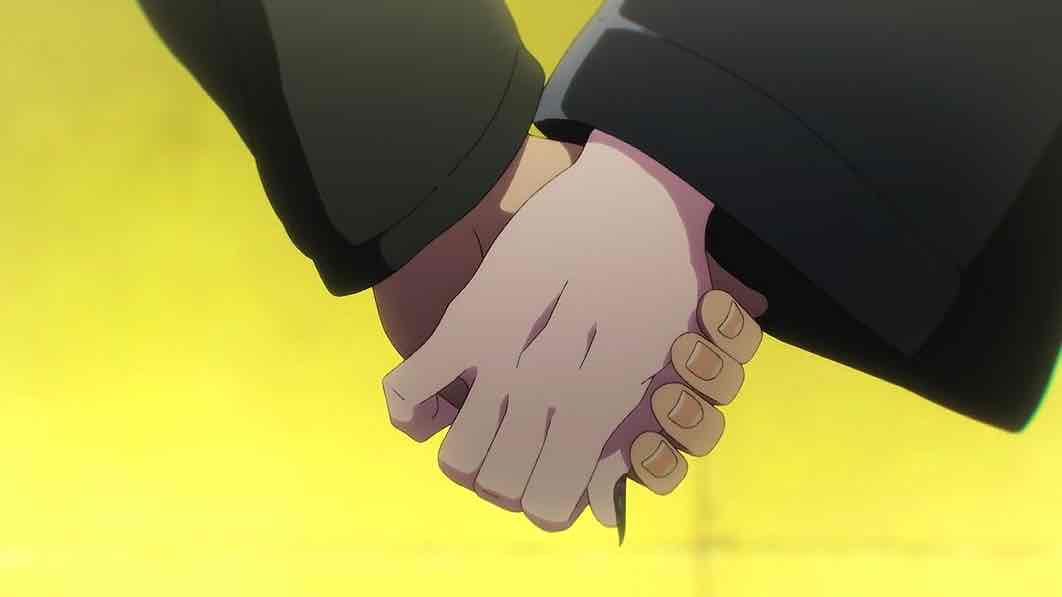



leongsh
August 27, 2022 at 12:08 amIt’s obvious that Mahiru is going out with a vampire too except that he is now aware of it. That look from Nazuna as they walked by on the opposite side of the road is especially indicative.
In this episode, we get some teasers of who Kou is in the normal world. He is a model student. If what Akira has surmised is true, i.e. that Kou has been using Mahiru as a role model for what a model student is like, that’s why for him, as an introvert, it is tiring keeping up the appearances in school and he wants release from that. Mahiru and Kou notices each other in school with their own circle of friends, or in Kou’s case, a circle of what he considers as acquaintances in keeping up his model student act. Mahiru considers Kou and Akira as close friends due to them knowing each other from childhood. Due to his interactions with Nazuna, Akira and recently with those other vampires, Kou is starting to figure out that what he has with Akira and now, Mahiru, is actually friendship before they drifted apart but now back together again. He was definitely very pleased, despite his trepidation of being discovered, that Mahiru recognised him and considers him his friend.
I think with Mahiru now being introduced and added to the mix, I figure that Kou will find out that Mahiru is going out with a vampire and let him into the world that he is now existing in. I expect this will become messy.
One last note – where are the male vampires? So far, we are only shown female vampires. I hope it doesn’t go anime cliche that one of those female vampires is a trap….
leongsh
August 27, 2022 at 12:10 amack.. typo.. “not aware of it” instead of “now aware of it”.